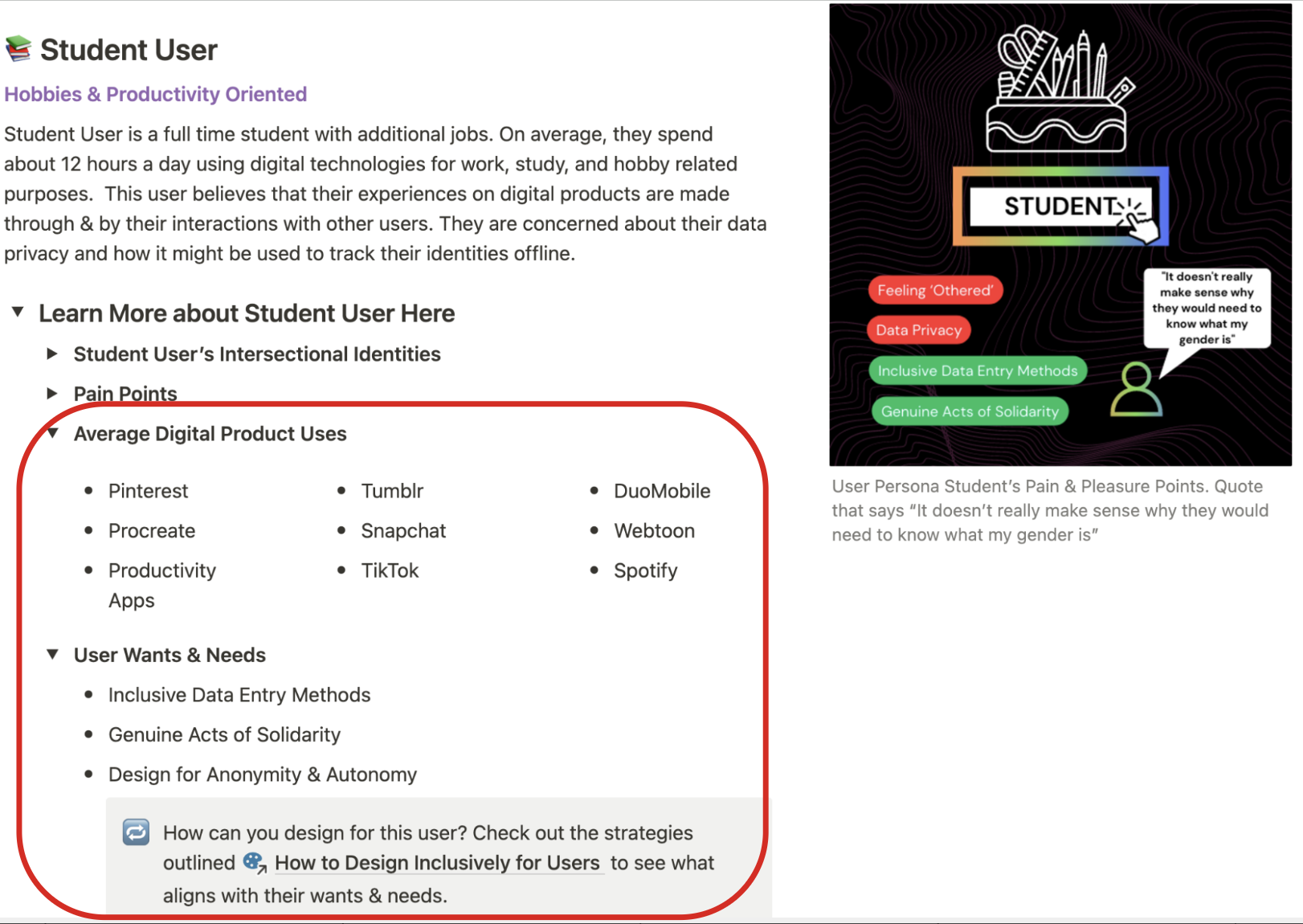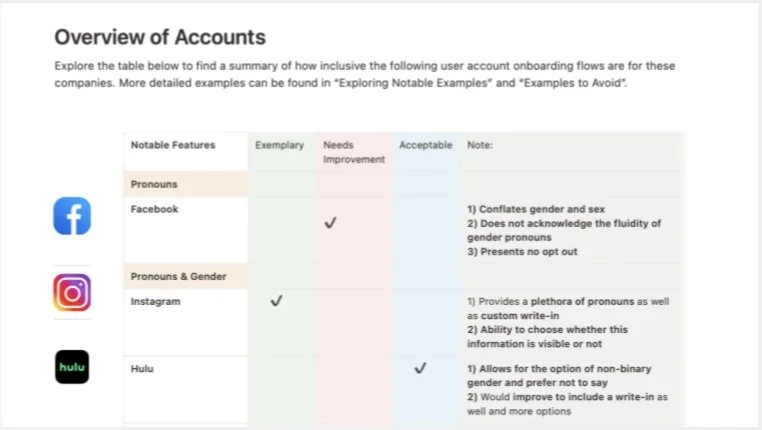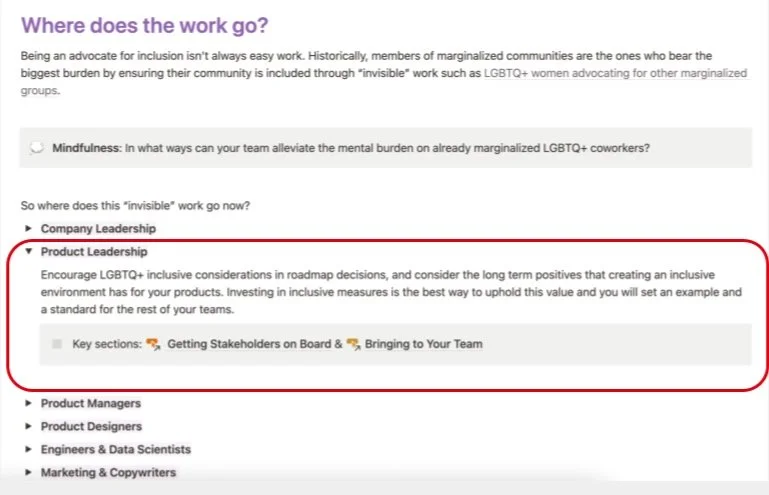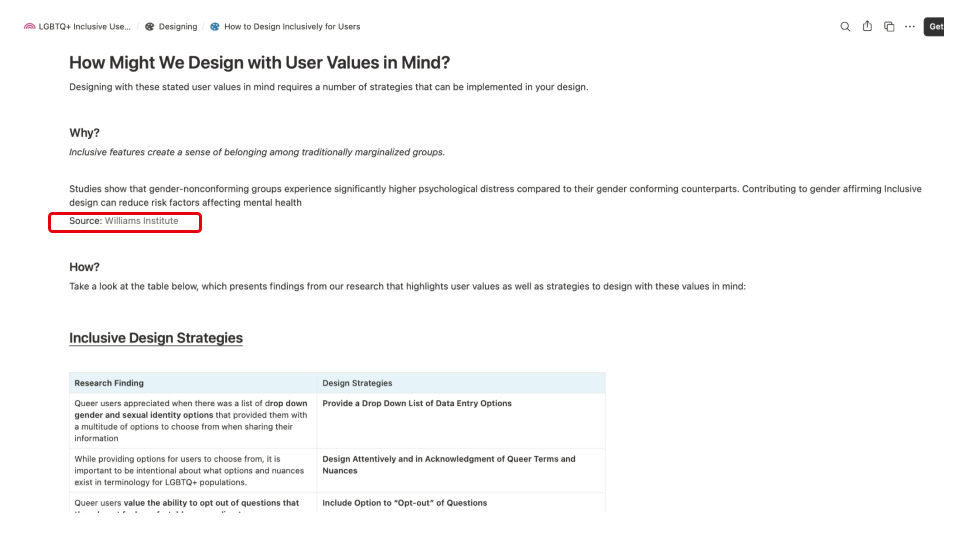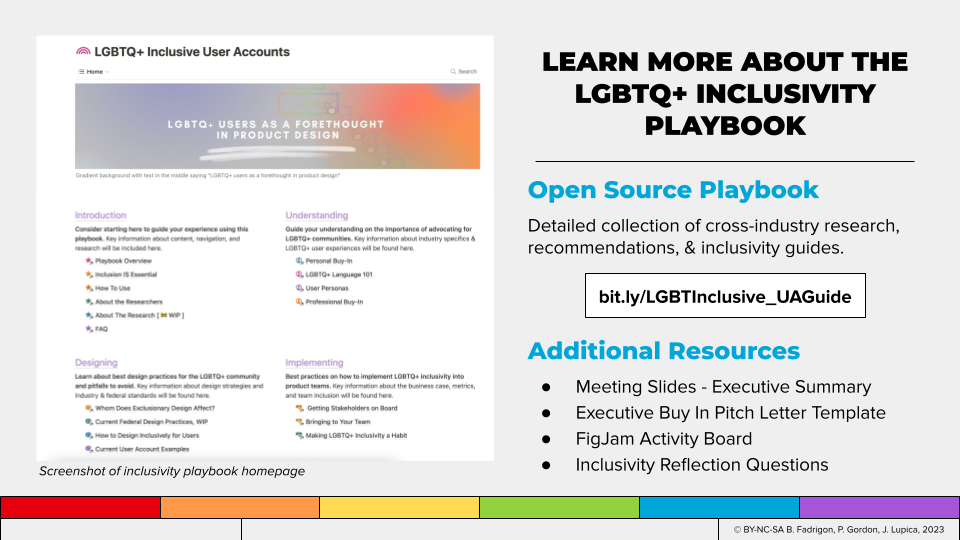
LGBTQ+ Inclusive Design
The Problem
The ubiquity of user accounts and data collection processes within today’s digital culture has resulted in concerns regarding the presence of inclusivity within user account interfaces, particularly for Queer populations.
Our Goal
This research seeks to find what inclusive strategies benefit Queer populations, when and where are Queer populations left out, and what we can do to rethink design processes to make them more inclusive.
While it is currently a work in progress as part of our Capstone, our proposed research is to develop a playbook to inform companies on inclusive design principles when developing User Account interfaces
Artifact from survey recruitment!
Research Methods
Literature Review
Surveys
Interviews
Why Literature Review?
Use existing research to establish foundational knowledge on instances and effects of Queer marginalization, inclusive design principles, and effective research methodologies
Why Surveys?
Using Qualtrics surveys allows us to identify and compare Queer users’ pain points, thoughts and patterns when they navigating various digital user interfaces in which they create digital accounts
Why Interviews?
Who did we interview?
Product Mangers
As a significant part of the decision making and implementation process within product teams, interviewing Product Managers would provided insight into the feasibility and process of implementing our playbook into product teams within industry
Queer End Users
How Queer users feel about sharing personal data and information when filling out information for data collection
What questions pose the most discomfort and why
What makes Queer users feel included and represented when being asked about gender, sexual identity in data collection processes
Analyzing Our Research Results
Survey Analysis
We received 171 survey responses from LGBTQ+ and Non-LGBTQ+ digital technology users
Mapped qualitative survey responses and used cross tabulation to compare responses LGBTQ and Non- LGBTQ Groups
Thematic Analysis
Using Taguette, we were able to assign codes to similar thoughts and themes that we found throughout our interview data
Preliminary Findings
During data sharing processes, Queer Users value:
Autonomy over data
Respect and positive intention for LGBTQ+ community (outside of pride month)
Transparency of motives for being asked for data
Playbook Drafting
Using Miro, we affinity mapped our research findings to assess what common themes were seen throughout our research that we would incorporate into our Playbook
Usability Testing
After Incorporating our findings into our first Playbook Draft, we developed a Usability Test, presenting a series of tasks for 5 Queer users and 5 Product Managers/Designers to perform
Post-Usability Test Playbook Design Iteration
User Feedback:
Content
Language
Information Presentation
+
PM Feedback:
Information Digestibility
Layout
Clear Resource Attribution
Application
Iterated on digestibility content
Improved navigation
Clearly attributing resources through pages
=
Post-Usability Test Playbook Design Iteration
Information Digestibility & Presentation
We used user personas, tables, and summaries to make information more digestible
Post-Usability Test Playbook Design Iteration
2. Improved navigation
Utilized hierarchy and use cases to make information more digestible and easier to navigate
Post-Usability Test Playbook Design Iteration
3. Clearly Attribute Resources
Resources clearly stated throughout Playbook
Since our guide is living and breathing, we linked also hyperlinked resources for easy navigation and access for users
Outcomes
We presented our product and findings across academic institutions, conferences, and industry
Reflections
While we used a diverse pool of participants for our research, there were some limitations to diversity due to snowball sampling within our local networks
Research was also limited to the number of industries/roles that we chose to participate
In the future, I would like to explore intersectionality in design practices and the differences in its consideration across industry (ex: health vs. tech)
Contributions
I worked as a User Researcher and Product Manager on this project, where I managed multiple stages of product development and timelines
I designed the survey sent out to users and co-designed the interview guide
I led multiple user and Product Manager interviews, and analyzed preliminary findings before collaborating with the team to further examine findings
I created Usability tasks for the Design section, which is the area of the Playbook that I wrote and developed, while also reviewing and editing the rest of the guide
Administered Usability tests to Queer Users and Product Managers
Co-presented findings with team








